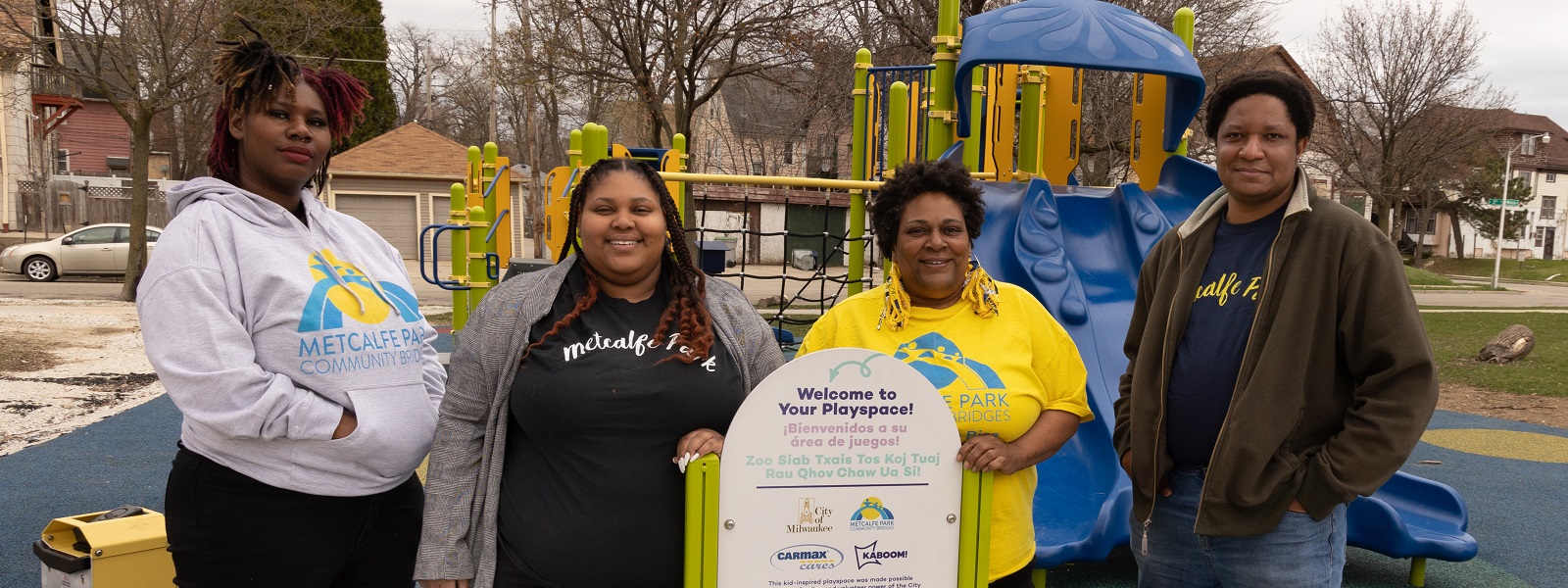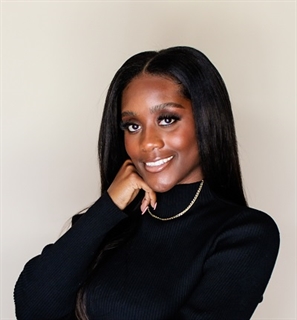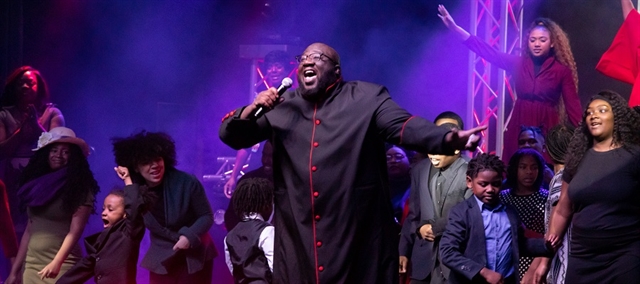Racial Equity and the Racial Equity Fund

February 16, 2023
The discussion surrounding racial equity is an important one and is a topic that everyone should be educated on. But what does racial equity mean?
Written in collaboration with: Gevonchai Hudnall-Vogel, Racial Equity Portfolio Manager
When equity is at the center of community life, all members of that community can thrive with equitable resources and opportunities. It sounds simple, doesn’t it? Inequity can show up in our daily lives and us not even see it, like in our internet bill or grocery store options. Even if we don’t notice it, it is happening.
Inequity’s definition is simple: “lack of fairness or justice.” As we watch courtroom dramas, many people would compare “inequity” to “injustice,” and they’re not entirely wrong. Injustice is a quality relating to unfairness or undeserved outcomes. However, this injustice goes far beyond the legal system and TV shows on primetime. Race is one of the most reliable predictors of life outcomes and the inequity that communities of color face every day is a brutal reminder that life is not the same for everyone. As it relates to racial inequity, it includes racial barriers at the structural, institutional, and individual level:
- Structural racial inequity refers to wider political and social disadvantages within society, such as higher rates of poverty for Black people or higher rates of death from COVID-19 among people of color compared to whites.
- Institutional racial inequity includes policies, practice, and procedures that work to the benefit of white people and the detriment of people of color, usually unintentionally or inadvertently.
- Individual racial inequity is a pre-judgment, bias, stereotypes, or generalizations about an individual or group based on race.

United Way of Greater Milwaukee & Waukesha County is committed to breaking down these racial barriers and finding equity-based solutions for our community. We’re approaching these barriers with our Racial Equity Portfolio and Racial Equity Fund.
The Racial Equity Fund, managed by Gevonchai Hudnall-Vogel, is focused on a commitment to deepen our impact as funders, partners, and conveners, especially as related to racial equity and social justice. Having this designated funding allows us to do more and focus on Black and Brown members in our community. Gevonchai’s enthusiasm for promoting equity led her to pursue work directly aligned with systemic community change. In this past year, with the help of two advisory councils, she has been able to steward over $2 million to Black- and Brown-led businesses and organizations, and towards reducing barriers to employment.
Racial equity is the process of eliminating racial disparities and improving outcomes for black and brown people. It’s the intentional and continual practice of changing policies, practices, systems, and structures by prioritizing measurable change in the lives of people of color.
Currently, significant disparities exist within social justice sectors in terms of underrepresentation in leadership and lack of access to funding and support for people of color. These leaders often possess expertise due to lived experience, training, and education. United Way’s Racial Equity Fund increases investments in organizations serving people of color, led by people of color, with an emphasis on Black, Latina/o/x, Asian, and Indigenous leaders.
Racial inequity is not something that will be solved overnight. United Way’s funding of Black- and Brown-led businesses lifts up and gives the voices back to traditionally underserved communities in Milwaukee, Waukesha, southern Ozaukee, and southern Washington counties so that we can, with vigor, move towards a racially equitable society that removes stigmas surrounding people of color. To not notice equity, or inequity, is to not be self-aware.
That’s something we can change, together, helping us all Live United.

Pictured at top: members of Metcalfe Park Community Bridges, an agency invested in by the Racial Equity Fund; at right: Gevonchai Hudnall-Vogel, Racial Equity Fund Portfolio Manager; members of CAPITA Productions, a Racial Equity Fund grantee, perform “We Are the Drum.”
Learn more about past grantees here.
Interested in supporting the Racial Equity Fund?
Click here to donate.
For more updates on the Racial Equity Fund and other United Way initiatives, follow us on Facebook, Twitter, Instagram, and LinkedIN.

Have something to say? LEAVE A COMMENT:
Your email address will not be published. All fields Required.
United Way of Greater Milwaukee & Waukehsa County blog and social media presence is designed as a source for information, sharing and collaboration about United Way and health and human service related topics. As part of our commitment to our readers, we expect all posters to abide by the following rules:
• Posts and comments should be on topic, conversational, and serve to educate or entertain
• Posts and comments may not be unlawful, fraudulent, threatening, libelous, defamatory, discriminatory, harassing, obscene or otherwise rude or in poor taste
• Posts and comments may not be used for any commercial purpose or otherwise to promote any outside organization or its activities
United Way of Greater Milwaukee & Waukesha County reserves the right, at our discretion, to remove any post or to revoke a user’s privilege to post to our page. Comments found to be in conflict with the guidelines above will be removed promptly.
Comments are not necessarily those of United Way of Greater Milwaukee & Waukesha County and its employees and we do not guarantee the accuracy of these posts.